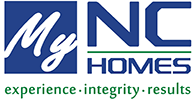
Many of our first-time home buyers start the process with a general idea that it is time to buy instead of continuing to rent. As renters; the terminology they have encountered included rent, security deposit, and terms of lease. Jumping into the home buying process introduces many first-time buyers to a new set of terms. While these terms are easily defined with a simple search, I want to put it in context of a general process you’ll encounter for buying.
Determine If You're Qualified To Buy A Home
Usually many first-time home buyers start their search with condos, townhomes, or single-family homes in a desirable area. Attractive online photos are a definite lure and motivator to figure out if buying is a possibility. The first question asked is, “Do you qualify?” So let's take a closer look at what this term actually means:
Qualify - presenting evidence that you have spoken with a lender and that they have reviewed your credit and qualified you to  purchase property
purchase property
Pre-Approved - presenting evidence that a mortgage lender has reviewed financial data including tax returns and bank statements and had underwriting look over the buyer’s file and confirm that subject to a signed contract, and appraisal that the buyer is ready and able to close on a property.
We highly recommend that our Buyers work with a home loan lender that will assist you in determining what you can afford based on your income and any debt, such as car loans, student loans, or credit card debt. “Qualified” is great to give you an realistic idea of how much you can afford for a home, but when you’re ready to actively go out and look for a home to buy, you want to be “Pre-Approved”.
What to Financially Consider?
Once you figured out if you are financially able to purchase a home there are several other items that need to be financially accounted for. You will need to determine how you will pay for the following and whether you need to include these in your monthly costs. These terms will be helpful as you get closer to making any commitments.
Diligence Fee - This money goes to the seller and is a show of commitment to the sales contract. It is non refundable should you decide to terminate the contract during your agreed upon Diligence Period. This is credited against the contract price at closing.
Earnest Money Deposit / Additional Earnest Money Deposit - Earnest Money is your down payment delivered at the time of contract, while Additional Earnest Money Deposit is generally delivered at the end of the Diligence Period. These are refundable during the diligence period and become non refundable once Diligence ends. These are also credited against the contract price at closing.
Private Mortgage Insurance - Also referred to as PMI, this insurance protects the lender (not you) if you default on the loan. PMI is typical on conventional loans with less than 20% of a down payment; however there are a number of loan programs currently available that do not require PMI even with less than 20% down. Discuss your options with your mortgage lender.
Default - Failure to fulfill your financial obligation
Conventional - A loan that is not guaranteed (backed by) a federal government agency and typically has a fixed rate.
Fixed rate - The interest rate remains the same throughout the length of the loan.
Adjustable rate - The interest rate can change over time. Generally the rate is fixed for a period of years (5 and 7 are common) and then will change based on the terms of the loan agreement.
Homeowners Insurance - Property insurance, similar to renters insurance or car insurance, that covers a private residence.
Closing Costs - These costs are for the transaction of the home purchase. Investopedia lists items such as: origination fees, discount points, appraisal fees, title searches, title insurance, surveys, taxes, deed-recording fees and credit report charges.
Origination Fees - A fee charged by the mortgage lender for processing the application.
Discount Points - Also known as mortgage points, are fees paid to the mortgage lender at closing for a lower interest rate.
Appraisal Fees - Payment to the person that assessed the value of the home or property.
Title Searches - Locating documents that show the history of the property and relevant interests or regulations related to the property.
Title Insurance - Per NOLO, this protects you and your mortgage lender if the seller, or previous sellers, did not have free and clear ownership of the home.
Surveys - A land survey identifies the boundaries of the property, possible required setbacks, any encroachments from neighbors (fences, walls, portions of buildings) on the land in question.
Encroachment - Advancing or trespassing beyond defined property rights.
Deed-recording Fees - Fees charged by the government for registering real estate.
Attorney Fees - The amount charged by the closing attorney or company for preparing, reviewing and executing all the necessary closing paperwork.
Working with a Real Estate Agent
 There are many benefits to working with an agent when buying a home. I have outlined questions and considerations first-time buyers should think about when venturing into homeownership. Agents have a good understanding of the neighborhoods and can help you find a great fit for your lifestyle. Agents understand the ebb and flow of the local market and know a host of professional resources that specialize in home inspections, mortgage loans, etc. Agents may ask you to sign a buyer-broker agreement, which protects the agent and buyer. Time and effort is spent by the agent in researching, requesting appointments, showing homes, and making inquiries about properties to assist buyers in finding the right place to call home. These agreements protect the buyer and the agent to ensure proper compensation and representation in the home buying process.
There are many benefits to working with an agent when buying a home. I have outlined questions and considerations first-time buyers should think about when venturing into homeownership. Agents have a good understanding of the neighborhoods and can help you find a great fit for your lifestyle. Agents understand the ebb and flow of the local market and know a host of professional resources that specialize in home inspections, mortgage loans, etc. Agents may ask you to sign a buyer-broker agreement, which protects the agent and buyer. Time and effort is spent by the agent in researching, requesting appointments, showing homes, and making inquiries about properties to assist buyers in finding the right place to call home. These agreements protect the buyer and the agent to ensure proper compensation and representation in the home buying process.
Buyer-broker Agreement - Identifies an amount of time that the buyer and the agent work together to find property. There are different types of buyer-broker agreements.
Finding a Place to Call Home
Once you find the right home, there are a few stages to go through before you are handed the keys. You will put in your initial offer, which the seller will consider and possibly choose. Your agent will guide you through the offer and answer questions you might have. The contract stages of the buying process are:
Contingent - The terms of the contract are not yet final and need certain events or conditions to occur, such as a home inspection or agreement to fix particular issues like a roof.
Pending - The contract is final and is moving towards closing.
The home buying process goes through different stages that can seem difficult to navigate if you have not done it before. Having a seasoned professional to guide you through it will ensure you have a resource to answer questions and look out for your best interests. The team at My NC Homes has many years of experience in new home construction, real estate, and importantly knows the Triangle. We invite you to visit our Home Buyer’s Guide and Tools page or contact us if you want to learn more.
Co-authored by 3 Bossy Bees.
Posted by Larry Tollen on



Leave A Comment